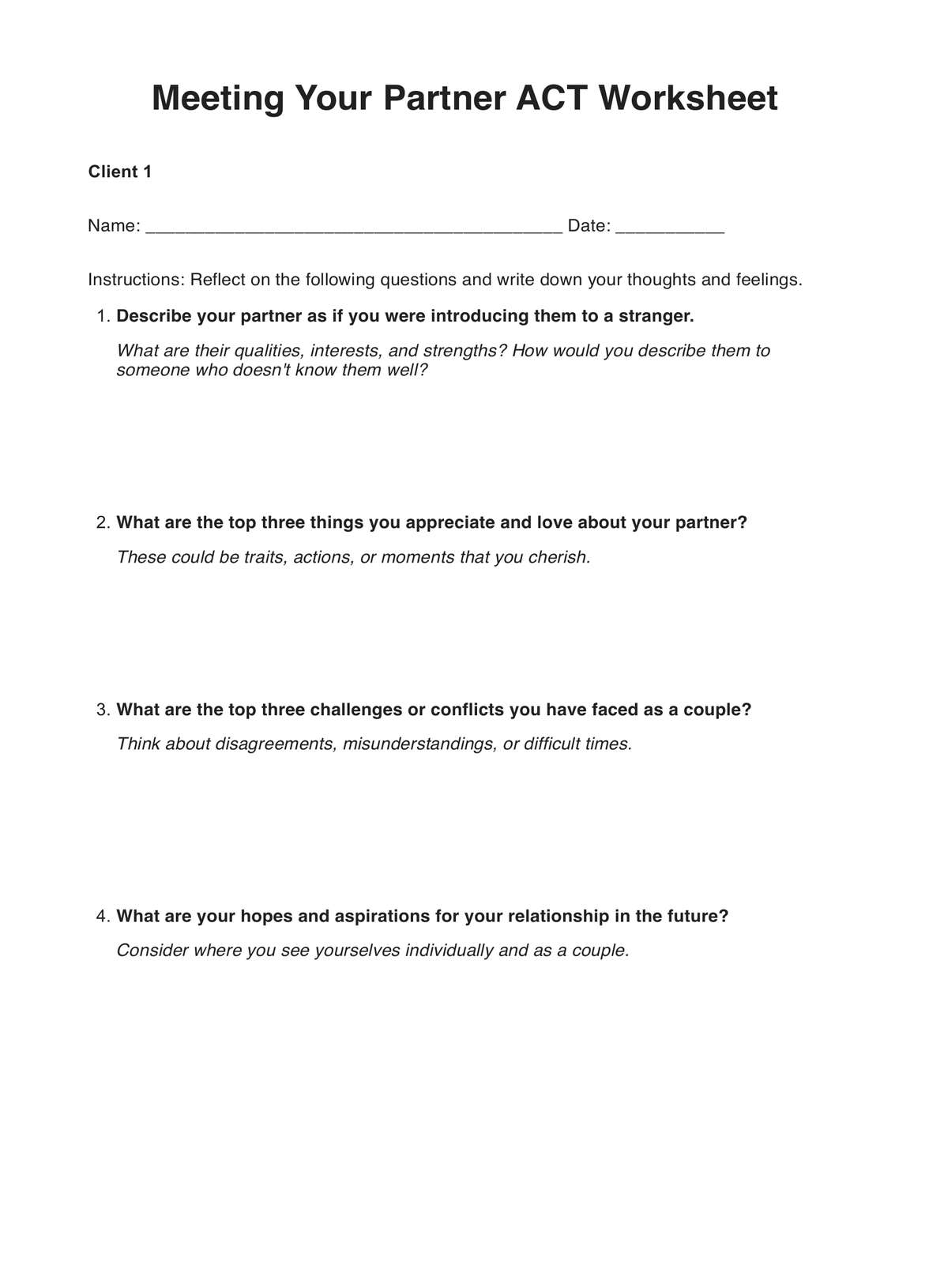The Meeting Your Partner ACT Worksheet is a structured tool designed to facilitate deeper understanding and connection between partners using Acceptance and Commitment Therapy (ACT) principles. It prompts individuals to reflect on their partner's qualities, appreciations, challenges, and future aspirations, fostering open communication and empathy.

Meeting Your Partner ACT Worksheet
Enhance relationships with the Appreciating Your Partner ACT Worksheet, a healthcare tool promoting understanding and connection. Strengthen bonds today.
Use Template
Meeting Your Partner ACT Worksheet Template
Commonly asked questions
Absolutely. While the worksheet is valuable in therapy, it's also designed for anyone seeking to enhance their relationship. Individuals can engage with it independently to promote meaningful conversations and self-awareness.
Using the Meeting Your Partner ACT Worksheet can enhance understanding, improved communication, emotional connection, values alignment, conflict resolution, and shared growth within relationships.
EHR and practice management software
Get started for free
*No credit card required
Free
$0/usd
Unlimited clients
Telehealth
1GB of storage
Client portal text
Automated billing and online payments











